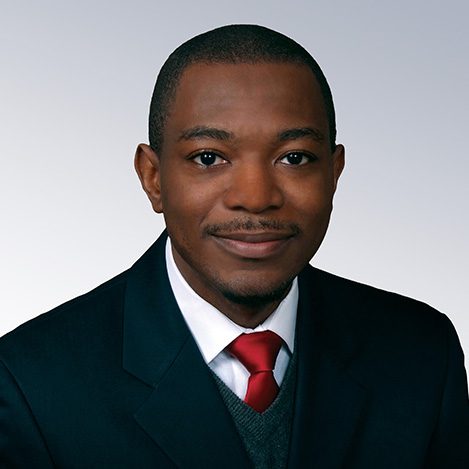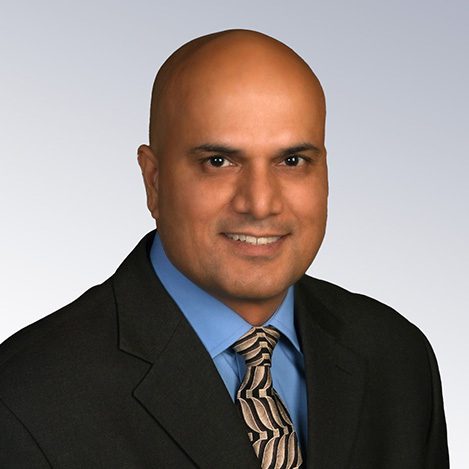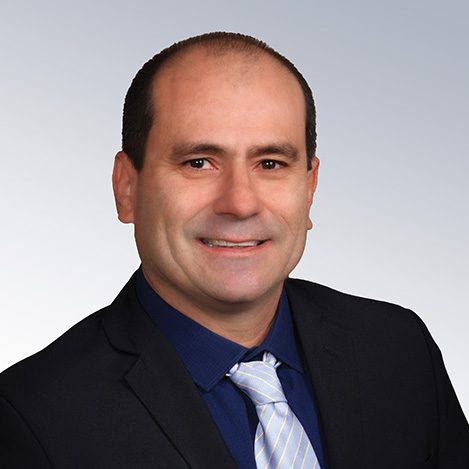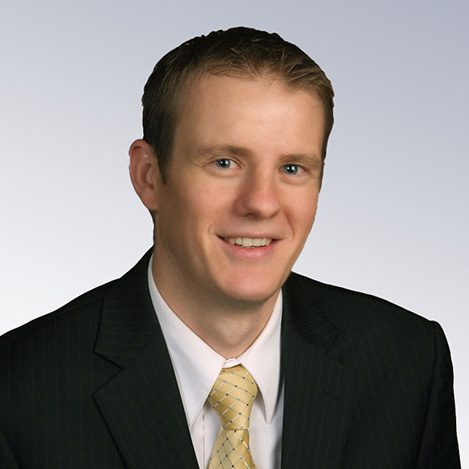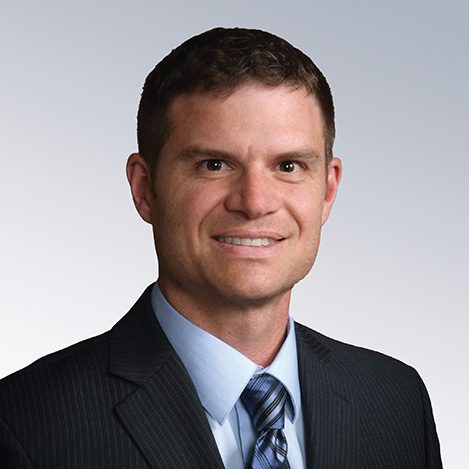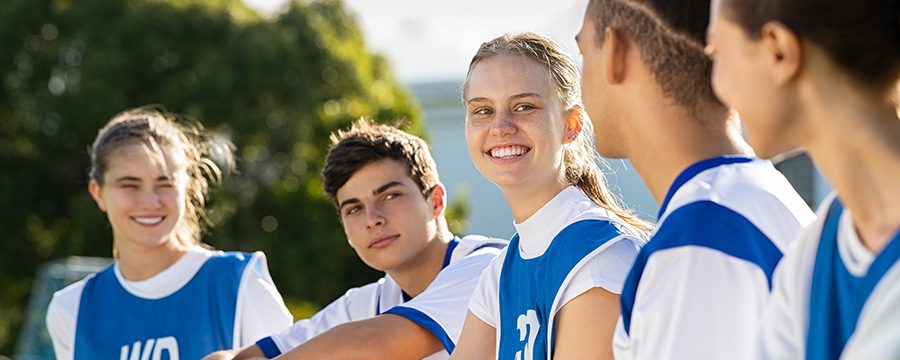
Comprehensive Expertise for Athletic Injuries
Our sports medicine experts provide prompt access to injury assessments and care through a variety of access points to meet your needs. Sports medicine services are available through our:
- HaysMed Orthopedic Institute
- Athletic Sports Injury Clinic (walk-in, during the school year)
- Convenient Care Clinic (walk-in urgent care, year-round)
- Athletic Training outreach program
As part of our commitment to excellence in sports medicine and helping all athletes perform at their best – and healthiest – we also serve as an educational resource for athletes, coaches, families and the general public. Our experts provide education on topics like diagnosing conditions, preventing injury and re-injury, rehabilitation, and safe return to activity.
The HaysMed Sports Medicine team also serves as clinical instructors for the Fort Hays State University Athletic Training Education Program, as well as in a variety of settings in healthcare.
Sports Performance Program
HaysMed offers a variety of programs to help athletes enhance sports performance, reduce their risk of injury, and provide a platform to assist in recruiting for those athletes interested in collegiate athletics. Learn more.
Athletic Edge
Athletic Edge at HaysMed is a unique performance enhancement program customized for each athlete. Our certified professional trainers assess individual strengths and weaknesses and then guide young athletes through an intense program designed to increase skill levels, all in a fun, positive environment. Daily workouts motivate and challenge athletes while providing safe, age-appropriate techniques to improve speed, coordination, strength and conditioning, ultimately setting a foundation for good lifetime habits.
Another key component of Athletic Edge is our focus on correcting movements and improving techniques to reduce injury risk. Our trainers teach you how to avoid injury so that you’re able to stay in the game. Whatever your sport of choice is, we can help you turn small gains into powerful results. Workouts can be performed in a group setting or in individual/small groups.
The Testing Combine is held annually at The Center for Health Improvement. Athletes from around the state are invited to test their athletic abilities in a variety of events. In addition to our annual event, testing is also available to schools or individuals by appointment.
Upcoming Sessions
For information about our schedules for upcoming sessions, or to enroll in Athletic Edge, please call 785-623-6369.
Who is a candidate for Athletic Edge?
School-age athletes – ranging in age from 10 years old all the way through college – are eligible for our program. Many experts consider the 10-18 age range the ideal time for athletes to develop speed, strength, and power. Athletic Edge was created for athletes at all levels who aspire to work hard and improve their skills and abilities. The program utilizes the most up-to-date training tactics to build a young athlete’s foundation. Workouts are intense but all within a fun and friendly environment to ensure athletes are engaged and motivated to work hard. Athletic Edge has enabled athletes to improve their athletic performance and develop a higher level of self-confidence.
If you are willing to dedicate time and energy to get faster, jump higher, or build strength, then Athletic Edge is your number one choice in western Kansas to get you there.
Program Focus
Athletic Edge focuses on specific areas to build a well-rounded athlete, including:
- Speed
- Agility
- Power
- Injury prevention
- Conditioning
- Self-confidence
Athletic Edge incorporates well-designed, fun sports training equipment like medicine balls, resistance bands, body weight exercises, ladders, plyometric boxes and weight sleds. Our signature training methods, together with the tremendous facilities at The Center for Health Improvement, ensure this program produces results and keeps area youth returning for more.
Performance evaluations are also included in the program. We test each athlete in a variety of areas. including laser timing systems for accurate assessment of their overall abilities. This helps to identify individual strengths and weaknesses.
Program Options
Weights & Gym Workout – Full 2 hours per session Cost: $200
Signature workout program plus individualized weight training program. Ideal for inexperienced lifters who need more guidance. This option is also great for highly motivated athletes who want to supplement their school’s weight training with a more sport-specific or need-specific program.
Gym Workout only – 1 hour per session Cost: $125
This option is ideal for athletes who are already involved with weight training at their school but want to supplement their program with our speed and agility workouts. This option also works well for younger athletes who do not feel they are ready for weight training.
Weights Workout only – 1 hour per session Cost: $125
This option is great for athletes who want an individualized weight training program that is sport specific. For athletes who are busy with school workouts, open gyms and rec games, our weight program offers a great way to still improve strength and ability while avoiding burn out. In addition, our certified strength and conditioning specialists focus on proper lifting techniques to avoid injury.
Special Multi-Child Discount. A discount is offered for those families with multiple children. A first child is full price, while a $25 discount is available for each additional child.
Individual and small group training sessions
Athletic Edge also offers customized training sessions for individuals or small groups. If you would prefer a 1-on-1 training program at a great price or a small group training program with friends or family members, please contact us for more information on prices and dates/times available.
Performance Evaluations
Until an athlete knows his or her current level of ability, it is impossible to realistically create goals and monitor progress.
The performance evaluation is critical to every athlete in our program in order to:
- Assess the current level of an athlete’s ability
- Identify limitations or weaknesses that need developed
- Allows proper exercise prescription based on individual needs
- Establishes a record to determine progress in our program
During the evaluation, athletes will be taught our dynamic warm up, be examined during our functional movement screens, and tested in a variety of speed and strength tests. After the evaluation, every athlete and parent will get an individualized report to review the results.
Some examples of our testing include:
- Seated shot put
- Pro agility test
- 10 yard dash
- 40 yard dash
- Broad jump
- Vertical jump
- Standing broad jump
- Functional Movement Assessment
- Running Mechanics Assessment
Sample Workouts
Each workout is designed with a variety of activities and equipment to keep athletes interested and challenge their ability levels. The items listed below are included in EACH action-packed session of Athletic Edge.
Active Dynamic Warm Up 10-15 minutes of exercises to warm up the muscles, improve flexibility, and reinforce proper postures/running mechanics.
Agility Ladder Designed to improve footwork, coordination, and over-speed training for a quick first step and dynamic turnover when sprinting.
Explosive Upper Body Training A combination of medicine ball, body weight, and plyometrics to train shoulder stability, strength, and power.
Lower Body Plyometrics There is a close relationship between jumping and sprinting. Drills will include 2 leg and single leg jumps, repetitive jumping, and work on landing mechanics to decrease the risk of injury.
Core Stability & Balance The midsection is often forgotten about in training. These exercises are designed to challenge the core muscles in more functional standing positions. In addition, balance exercises will challenge the stability of multiple joints including the ankle, knee, hip, and shoulder.
Speed and Agility A variety of cutting, pivoting, and sprinting. Technique is a main focus in the beginning and can help reduce an athlete’s risk of injury. Speed sessions begin with technique drills to improve leg and arm mechanics, progressing to longer sprinting.
Conditioning Alternating days of sprinting, medium distance, and long distance runs with game days designed to enhance conditioning.
For information or to enroll in Athletic Edge, please call 785-623-6369.
Athletic Testing Combine
HaysMed Sports Medicine’s Athletic Testing Combine is one of the premier testing and evaluation programs in the state. Athletes have access to professional testing equipment and the expertise of nationally certified strength and conditioning specialists.
Based on the testing protocols of collegiate and professional programs, the Athletic Testing Combine was developed specifically for middle school and high school athletes to provide them with accurate and reliable information. The combine evaluates speed, agility, explosiveness, and power through a variety of standardized tests that correlate to athletic performance.
After testing is complete, athletes receive an individualized athletic profile which includes their results, percentile ratings for each event, national averages for athletes their age, as well as results for college and professional athletes. Coaches will also be sent a copy of their athletes’ results. Each report is designed to provide valuable insight into current levels of performance, track improvement from year to year, or set goals for the future. In addition to those reports, the results of the testing are sent to colleges throughout the Midwest as a recruiting tool for area athletes.
The Athletic Testing Combine is a great way for athletes to compete against some of the state’s best athletes, showcase their talents, and increase their exposure to college programs in the Midwest.
What is a Combine?
Combines are well known to all college football players who are trying to be selected by the NFL. The results of each evaluation are used to identify the top players for the professional draft. Similar events are now being used by other sports and age groups as a means to test athletic skills including speed, power, strength, and agility. A Combine makes it easier for coaches, athletes, and recruiters to evaluate an athlete’s overall athletic ability.
Who can take part in the Combine?
Any athlete in 6th grade or older who wants to evaluate his or her athletic skills can participate. We will measure every aspect of your ability and allow you to see where you stack up compared to athletes from Kansas and across the country.
Why should I attend?
Our goal is to give highly skilled and motivated athletes the opportunity to showcase their athletic ability. Most athletes attend for the following reasons:
- Have struggled to “get noticed” due to geographic location
- Wanted to compare themselves to other top athletes in the region
- Wanted to get their name out as a motivated prospect
- Using the Combine as a means of setting personal goals or evaluating progress
- Seeking accurate, unbiased testing data
Individual player profiles are a comprehensive way to present high school athletes to college programs. The player profile answers many of the questions college coaches have about athletes during the recruiting process. Results of the Athletic Testing Combine are sent to colleges.
What do I get for attending?
Participants receive a personal player profile, including Combine results and background information, as well as an opportunity to compete with some of the state’s best athletes.
What skill tests will be performed?
Athletes will be measured in seated shot put, pro agility, vertical jump, standing broad jump, bench press, and 10/40 yard dash.
What if I cannot participate in all of the events?
You can still attend and participate. All tests not performed will be labeled “NP” on the results.
Who will be doing the testing?
The testing and recording will be performed by certified athletic trainers, certified strength and conditioning specialists, personal trainers, and other wellness specialists from the Center for Health Improvement. Our staff is highly trained and all data will be objective with standardized rules for each event.
How does the overall athletic rating work?
Each test result is assigned a specific point value based on a scoring system. The system was developed as a means to compare athletes of different heights, weights and gender. All of these factors are taken into account to score males and females of all sizes on equal basis. The overall athletic rating is calculated by totaling the scores from each event in order to determine an athlete’s overall athletic ability.
What registration or sign-up needs to be completed?
Registration should be completed and brought to the event. Payment and registration may be brought the day of the event.
Testing Rules and Procedures
Each test conducted at the Combine has specific rules and conditions, as follows:
Seated Shot Put
This test is used to measure an athlete’s upper body power. The best of the three attempts will be recorded.
Rules:
- Athlete will sit on the floor in V sit position with his/her back up against the wall. Legs must lay flat on the floor.
- The athlete’s lower back must remain against the wall during the entire throw. The athlete’s upper back may come off the wall, but the lower back must remain stationary. Throws that are done while the lower back leaves contact from the wall will not be counted.
- Athlete will throw the shot, utilizing both hands, as far as he/she can. Distance will be marked and the shot returned to the athlete for their next attempt.
Pro Agility (Gym Floor or Indoor Track)
This test is a 20-yard agility test. Each athlete will perform two electronically timed attempts. The better of the two attempts will be recorded.
Rules:
- Athletes will begin each attempt by straddling the middle line, while facing the timer. Athletes will be instructed by the person running the test as to when they may begin
- Athletes use their right hand to touch the line on the right and his/her left hand when touching the line to the left. It is extremely important that athletes touch both lines with the correct hand.
- Athletes may go in either direction at the start. After touching the line, the athlete will sprint back across 10 yards to the other line, touching it with the correct hand. Athlete will then sprint back, finishing across the middle line.
- If an athlete falls, or fails to perform the test correctly, they will be allowed to redo the attempt,at the discretion of the starter and/or finish line representative
Vertical Jump
This test will be measured by utilizing a Vertec™ system. Each athlete will perform three attempts, with the best of the three being recorded to the nearest one-half inch.
Rules:
- Athlete should prepare to jump by standing with their dominant hand/arm closest to the Vertec™.
- Athlete is allowed to bend in any position and use their arms in any fashion they want, but they must jump stationary off of two feet. Athletes are not allowed to perform a “gather step”, or have a “running start.”
Broad Jump
The standing broad jump will be measured as the distance from the starting line to the nearest heel. Measurements will be taken in inches, to the nearest one/half inch. The best of three attempts will be recorded.
Rules:
- The athlete must jump and be able to “stick” the landing.
- No gather step or running start is allowed
- The athlete is not allowed to fall backwards and/or reach back with a hand.
10-Yard Dash / 40-Yard Dash (Indoor or Outdoor Track)
Each athlete will have the opportunity to run two electronically timed 40-yard sprints with electronic timers recording times at both 10 and 40 yards. Athlete times will be timed to the nearest one-hundredth of a second, with the better of the two attempts recorded.
Rules:
- Athlete must start each sprint from a 3-point stance.
- The “Starter” will monitor each start and start the timer, on the athlete’s first movement.
- If an athlete falls, or fails to perform the test correctly, they will be allowed to redo the attempt,at the discretion of the starter and/or finish line representative.
Bench Press
Each athlete will perform as many repetitions as possible with the chosen weight. Weight choices are: 65 lbs, 95 lbs, 125 lbs, 155 lbs, 185 lbs, or 225 lbs.
Total repetitions obtained will then be converted to a One-Repetition Maximum, using a formula. This One-Repetition Maximum will be recorded.
Rules:
- Buttocks cannot be raised off the bench.
- The elbows must be completely locked in order for each repetition to count
Athletic Training
HaysMed offers outreach athletic training to western Kansas school districts. Coverage includes prompt evaluation and immediate care of athletic injuries including referral when necessary. In addition, Athletic Trainers are also available to provide rehabilitation, reconditioning, and education to prevent athletic injury.
Depending on the contract, our Athletic Trainers may make 1-5 visits per week. Visits are made beginning at the end of the school day and extending into practice time so Athletic Trainers are available for taping, injury assessment, rehabilitation, and observing practices. This also aids in communication with coaches, athletes and parents without pulling students out of school.
We provide education on the Athletic Training profession, including daily interaction with students at outreach schools, job shadowing, participation in career fairs, speaking at area school districts and various community educational opportunities.
Schools also have the option for additional game/event coverage. This includes having a Certified Athletic Trainer at the location readily available for immediate care, assessment, and/or treatment of any athletic injuries. Our Athletic Trainers also focus on educating the athlete, coach, parents, and administration on the importance of prevention and treatment of athletic injuries.
If any injury requires further evaluation, HaysMed offers prompt access to qualified physicians and/or physician assistants at the HaysMed Orthopedic Institute, Convenient Care Clinic (walk-in urgent care, year-round), sports walk-in clinics, and other HaysMed physician offices. HaysMed Athletic Trainers work seamlessly with other healthcare professionals to focus on rehabilitation and reconditioning the athletes for a quick yet safe return to activity.
To contact us about athletic training, call 785-623-5691.
What is an Athletic Trainer?
Athletic Trainers are highly qualified, multi-skilled healthcare professionals who collaborate with physicians to provide preventative services, emergency care, clinical diagnosis, therapeutic intervention and rehabilitation of injuries and medical conditions. Athletic Trainers work under the direction of a physician as prescribed by state licensure statutes. Athletic Trainers must be licensed to practice by the Kansas State Board of Healing Arts.
Athletic Trainers contribute to a cost-efficient healthcare system by emphasizing injury prevention and injury evaluations that prevent unnecessary trips to the emergency room. In addition, they focus on restoring the patient to good health and quick/safe return to activity through aggressive, functional rehabilitation.
As part of a complete healthcare team, the Certified Athletic Trainer works in cooperation with other healthcare professionals, athletic administrators, coaches, and parents to prevent, recognize, manage, and rehabilitate injuries that result from physical activity.
A Certified Athletic Trainer’s day may include preparing athletes for practice/competition (e.g., taping, bracing), evaluating injuries to determine their management and possible referral, and developing conditioning and rehabilitation programs to safely return athletes back to participation. Athletic Trainers improve functional outcomes and specialize in patient education to prevent injury/re-injury.
Athletic Trainers vs. Personal Trainers
Athletic Trainers are sometimes confused with personal trainers. There is, however, a substantial difference in the education, skillset, job duties and patients for an athletic trainer vs. a personal trainer. The athletic training academic curriculum and clinical training follows the medical model. Athletic Trainers must graduate from an accredited baccalaureate or master’s program and 70 percent of them have a master’s degree.
Where does an athletic trainer work?
Athletic Trainers treat a range of patients and can work in a variety of settings. Regardless of their practice setting, athletic trainers practice according to their education, scope of practice and state practice act. Historically associated with college and professional athletics, the Certified Athletic Trainer of today has become prominent in many settings including high schools, outpatient rehabilitation centers, physician offices, military services, performing arts, corporate fitness, and youth sport settings.
What education is required for Certified Athletic Trainers?
Students who want to become certified athletic trainers must earn a degree from an accredited athletic training curriculum and meet the requirements set by the Board of Certification. Education programs use the medical-based model including formal instruction in areas such as: Injury prevention, first aid and emergency care, assessment of injury, human anatomy and physiology, therapeutic modalities, and nutrition. Classroom learning is enhanced through extensive clinical education experience in a variety of health care settings.
The current minimum requires a bachelor’s degree, however it was recently decided that the profession will transition to a master’s degree level minimum within the next several years. After candidates have met the curriculum requirements, they must pass a national certification exam. Those who become certified must meet continuing education requirements meant to ensure that ATCs stay current in the advancements of athletic training and continue to develop evidence-based skills and techniques. HaysMed Sports Medicine staff serves as adjunct clinical instructors in the Ft. Hays St. University Athletic Training Education Program.
Athletic Trainers
Shawn Landers, MS, ATC, CSCS
Shawn provides athletic training services for Ellis and Victoria.
Dylan Moore, MS, ATC
Dylan provides athletic training services for Hays High School and the Hays Larks.
Joshua Walker, MS, ATC
Joshua provides athletic training services for TMP and LaCrosse.
Chelsea Angel, ATC, Sidney Carpenter, ATC, and Ashleigh Hilligas, ATC provide game coverage as needed for all schools covered.
Concussion Care
A concussion is defined as a complex process affecting the brain, caused by biomechanical forces. Concussions are hard to recognize because there is no visible injury to the structure of the brain. Recognition comes from various post-concussion symptoms that may affect an individual’s cognitive and physical abilities, emotions and moods, and sleeping patterns. The majority (80-90 percent) of concussions resolve in a short (7-10 day) period, although the recovery time frame may be longer in children and adolescents.
Evaluation and diagnosis of concussion can include one or more of the following:
- Symptoms (e.g., headache, dizziness, confusion)
- Physical Signs (e.g., loss of consciousness, amnesia)
- Behavior changes (e.g., irritability)
- Cognitive impairment (e.g., slowed reaction times)
- Sleep disturbance (e.g., insomnia)
After a concussion occurs, it is important to measure how well your brain functions post injury. Knowing this information can assist in planning an effective recovery. At HaysMed, we believe that a comprehensive approach to concussion management starts before the injury occurs. As a result, a valid baseline concussion test is the first step.
What is a Baseline Concussion Test?
These tests are typically taken in the pre-season. Baseline tests are assessments that measure reaction time, memory capacity, speed of mental processing, concentration, and balance. Results from the baseline tests can be used and compared to a similar exam conducted if an athlete has a suspected concussion. The idea is that if we know how an individual athlete “normally” functions on such a test, after a concussion, the post-concussion scores can be one tool to help determine if and when they have sufficiently recovered from the concussion to safely return to play.
Why is it important to get a Baseline Concussion Test?
Each concussion is unique, so it is important to treat individuals on a case by case basis. Comparing post-injury test scores of an individual to their own baseline test scores is considered best practice. Without a baseline test to use for comparison, an individual’s scores can only be compared to the general population. Also, because baseline testing occurs in the pre-season, the very act of getting tested will raise concussion awareness for athletes, parents, and coaches. It must be emphasized that cognitive testing should not be the sole basis of management decisions. Rather, it is seen as an aid to the decision making process in conjunction with a range of assessments and investigational results. The final determination regarding concussion diagnosis and/or return to play is a medical decision based on clinical judgment and final clearance will still remain with the athlete’s physician.
For more information and assistance, call 785-261-7599.
Our Location
The HaysMed Sports Medicine Clinic is located in the Bickle/Eagle Health Complex at:
2500 Canterbury Drive
Hays, KS 67601
For more information or to make an appointment call 785-623-5900.
Walk-in visits are also welcome at our Convenient Care Clinic, which is open seven days a week.
Quality care for Kansans
At HaysMed and across our western Kansas alliance, we bring a shared commitment to high-quality care, outcomes and experiences. Our mission is deeply rooted in our role as a resource and partner for every patient and every community we serve.

